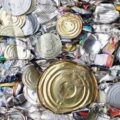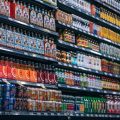Packaging waste fund Afvalfonds Verpakkinge recycles 2.5 million cans a year
The packaging waste fund Afvalfonds Verpakkingen will be responsible for recycling all packaging such as glass and paper, but also for managing the deposits. This entity is in charge of recycling materials such as glass and paper, as well as managing the deposits. A new tax was scheduled to come into effect on April 1, bringing an additional charge of 15 cents per can, along with the existing charge for small and large plastic bottles. The introduction of beverage can deposits is a “mammoth operation” in terms of logistics, said director Hester Klein Lankhorst.
The quantities of cans and bottles are enormous. Every year, more than 2.5 million cans of beer, soft drinks and other beverages enter the Dutch market, as well as more than 600 million large plastic bottles and 900 million small bottles. The intention is that at least 90 percent of this will be returned to collection points for recycling. It is intended to significantly reduce the amount of trash that ends up on the street and in nature.
Statiegeld Nederland, responsible for carrying out the deposit system in the Netherlands, has been headed by Raymond Gianotten, who assured that everyone is ready and prepared to face this task. “This concerns not only supermarkets, manufacturers and importers, but also the software needed to make the system work well. It is a collective system,” Gianotten pointed out.
To draw attention to the new canned deposit, an advertising campaign is being prepared for television, radio, online and public transportation stops. “You won’t be able to ignore it later,” said Klein Lankhorst. There are approximately 27,000 collection points, including at larger supermarkets, roadside service stations, at sports clubs and also at train stations such as Utrecht Central Station and Amsterdam Central Station. The intention is that more collection points will soon be installed at all staffed train stations.
There are also plans to establish collection points at high schools because many cans can often be found littering the adjacent streets. There will also be a specific information campaign aimed at students.
The collection of bottles and cans on a large scale is not an untapped waste but a source for making money. These materials delivered in big bags are then sorted and counted to be compressed into bales. “In fact, we’re not processing waste, we’re counting money because there’s a lot of money in the system,” Gianotten said.
Incidentally, there will be a transitional period before all cans have a deposit logo, because old stock must first be sold in stores. “It doesn’t happen in a day. In theory, you can see both cans with a deposit and without a deposit on the shelves,” said Klein Lankhorst. The director stressed the importance of delivering as much as possible, and not “ending up on the street”.









